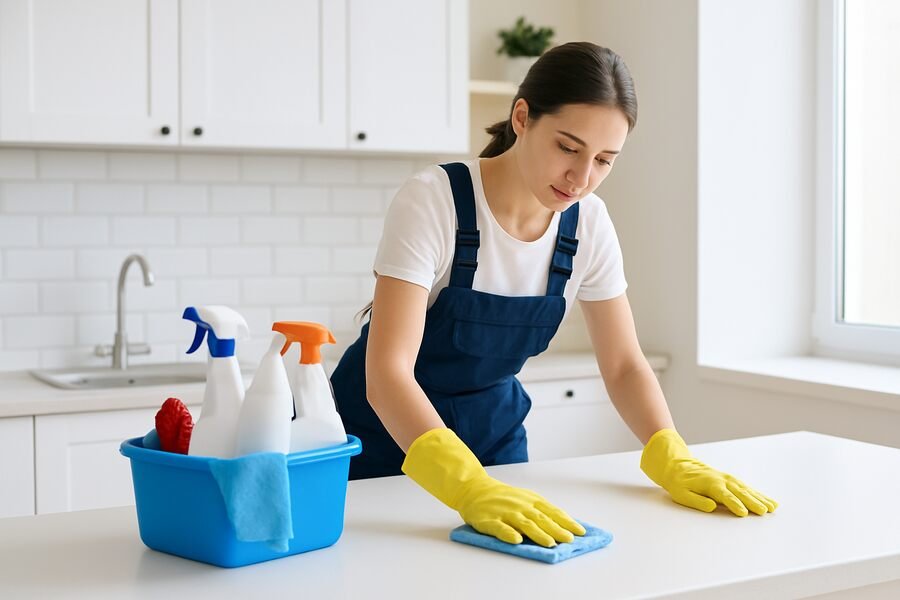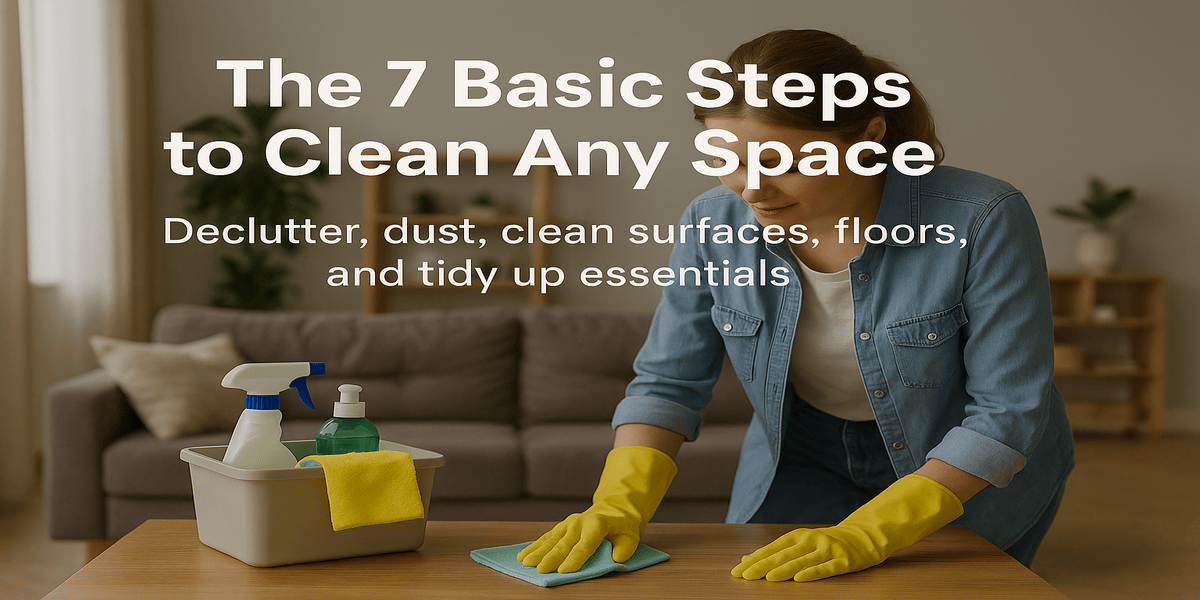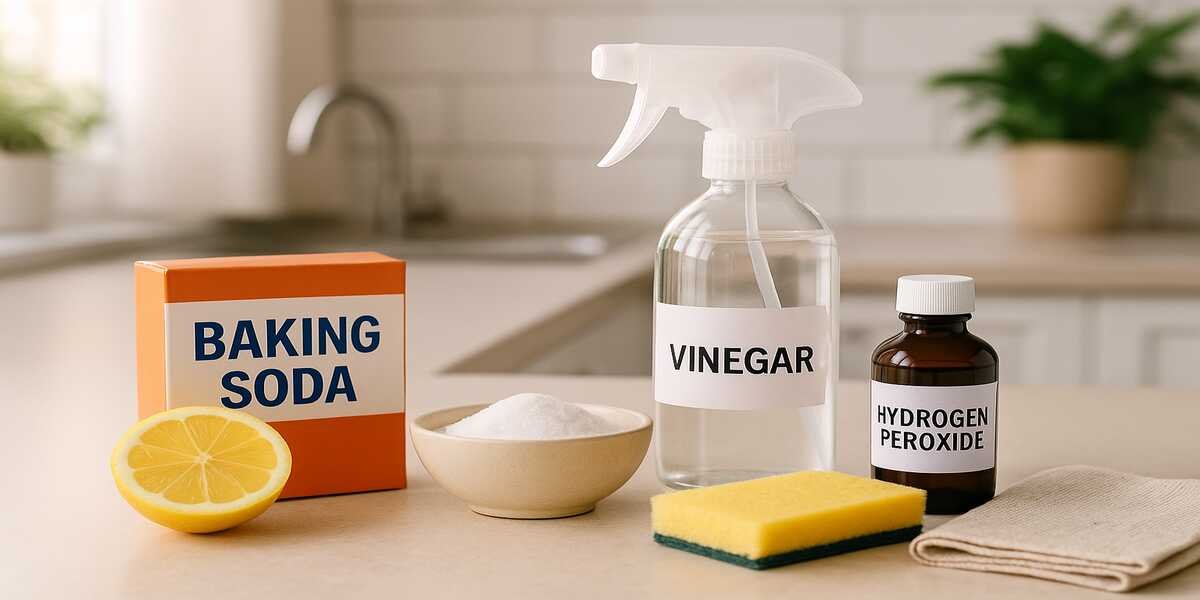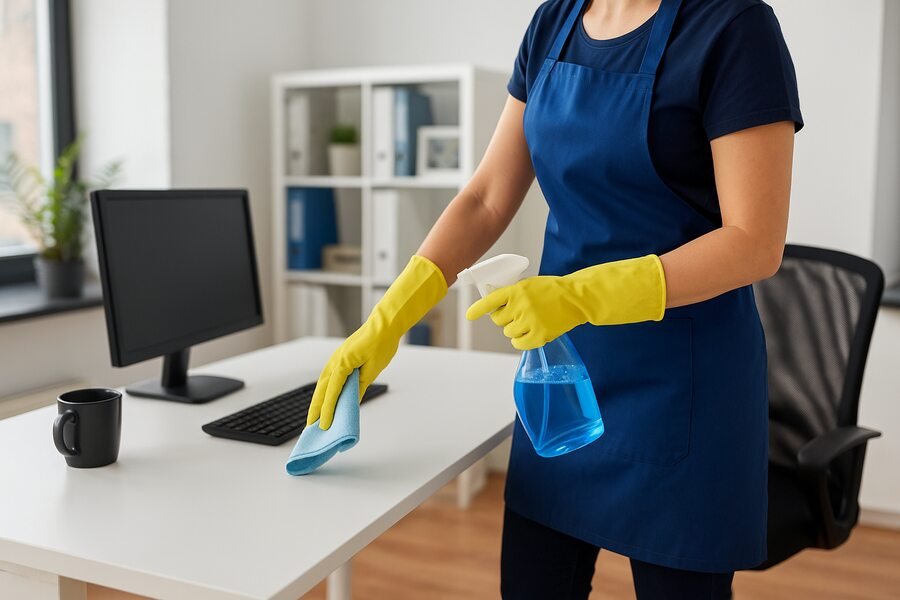How To Get a Professional-Grade Cleaning in Half the Time.

Professional-Grade Cleaning in Half the Time
Did you ever think how professional cleaners could clean a home so thoroughly in a purposefully short time? What sort of hidden instruments, enchanted cleansing elixirs, are they using? Or are their hands just that of extreme speed? If you have ever thought I wish I could get that perfect flawless finish without spending my whole weekend cleaning then you are not the only one. The upside of all this? It is not a superpower is a strategy.
Under this guide, we will unlock the tips, tricks and clever habits that cleaning professionals swear by. You will discover how to clean effectively without compromising quality and how to work along with your home and not against it. You will know how to achieve that professional level look on half the time, leaving you free to relax, entertain or simply enjoy looking at your handiwork.
How to Clean a Home in Less Time Like a Professional?
Professional cleaners do not do it faster by cutting corners; they work with a system. Whereas the others simply get in, professionals have a structured strategy that is time-saving and promises the best outcomes. With your system, you can clean your house effectively, both before family visits and to achieve the target standards required of a budget Bond cleaning Southport, cleaning a home in half the time as before, becoming efficient.
1. Prepare a Detailed Plan and Sequenced Tasks Before Initiating Cleaning
Haphazardly diving into cleaning without forethought is an assured approach to wasting limited hours. Experts chart a strategic regimen, inspecting tasks sequentially. This considered organisation focuses efforts and guarantees comprehensive coverage. Before cleaning, prudently designate 5 minutes to thoroughly plan your progression, enumerating obligations and the ordered undertaking.
Commence from overhead surfaces, working side-to-side across the room (choose a heading). Debris naturally falls, readying the ground for concluding suctioning or mopping following surface care. Returning to clean what was previously wiped is averted. Forewarning rescues impressive periods from routine chores.
2. Assemble Required Materials to Prevent Return Trips
Each supplementary excursion summoned to retrieve omitted sponges or towels incorporation needless laps to labour already demanding cleaning. Avoidance lies in assembling tools beforehand in an organised transport. A cart or pail carries supplies between tasks, precluding backtracking.
Microfiber cloths are used to wash stock, scrubbers, gloves, garbage bags, and when vacuuming and mopping, appropriate batteries, or untangled cords, or thrown-away pouches.
3. Prepare First to Clean Quickly
Considering dusting surfaces with a mishmash of items, or moving around a pile of items in an attempt to wipe them, is annoying and time-consuming. Auto-reset Cleaners are likely to be decent professional cleaners and will get anything out of place taken away.
Make it a habit of taking up 10 minutes and picking up misplaced objects and setting them back in place. Always have a basket where one can put loose items and move around rooms. When rushed, pack sort of tidily in one place to tidy up later. Surface clearing enables them to clean faster and more effectively.
4. Use the Appropriate Tools and Products
Speed and efficiency separate professionals – they utilise high-quality tools. A microfiber cloth, catching more dust in one pass than a rag, and a decent spray, easily removing grime with less scrubbing.
The practice of maintaining a stock of some of the multi-purpose items also simplifies routines. The majority of consumers buy a unitary cleaner, general-purpose, which they substitute depending on a particular requirement, such as a glass cleaner or disinfectant. This reduces bottles carried and quickens the process.
5. Work Room-by-Room Completely
Instead of randomly cleaning the whole house, pros focus on sections. A section may be a single room or part of one. They finish each fully before moving to another. This creates a sense of progress and prevents endless, unfinished feelings.
E.g., in the kitchen, you may initiate with wiping down countertops, then home appliances and finally sweeping the floors. Within the restroom, commence with clearing mirrors, transfer to sinks, then showers and lastly floors. Should you have an enormous clean coming up (perhaps preceding a meticulous professional, the zone technique makes certain you don’t squander time leaping between duties.
6. Adhere to the Two Hands Cleaning Rule
Professional cleaners hardly allow one hand to rest–they use both nearly at once. A hand sprays or scrubs, then a hand wipes or moves items effectively, doubling efficiency but not effort. As an illustration, rub down a table with a hand spraying cleaner and another following with a cloth. On the same note, when vacuuming, make sure that one of your hands is moving chairs or any other items away; this way, you will not be forced to stop and restart. This is a minor habit that can save you a lot of time when a clean is on.
7. Reduce Distractions Using a Cleaning Timer
Diverting attention, such as glancing at the phone, talking to relatives, or taking a break by doing something unrelated, can add a good thirty minutes to your cleaning time. To remain focused, professionals can set a timer on each room or play energetic music. If you are providing guests or a quality Bond Cleaning, interruptions only slow you down and cause stress.
8. Carry Out Small Maintenance Regularly.
Although major clean-ups are unavoidable, keeping abreast with small ones will make those big ones less dreadful. Frequent wiping down of surfaces and running the vacuum often kills filth before it settles into fabric and into fixtures. Spending five minutes here and there giving a dusting, sweeping or lightly cleaning leaves less work to be accumulated to do on weekends. Periodic repaint translates to less grime to hold onto and increases with years.
Tiny Steps Make the Big Job Easier
Experts understand that keeping up with the minor chores will mean spending less time scrubbing and scrubbing in the future. To be sure debris does not build up and dirt is allowed to settle, a regular, light cleaning must take place between large cleaning jobs. This type of micromanaging messes can make bigger cleans lighter work in the long run, with shorter time spent. If you want to improve your results even further, check out Eight Easy and Powerful Tips for Commercial Cleaning for more strategies to save time and effort.
Wrapping Up
Clever cleaning comes from planning and preparation more than perspiration. With a logical system, the right tools and an uninterrupted approach, major cuts to chore time are possible while still enjoying a spotless home space. Give these techniques a try yourself to see the difference.



